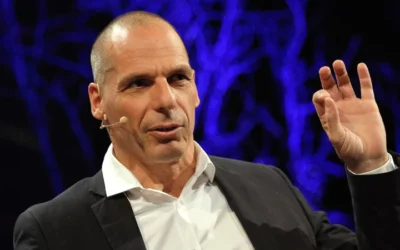Techno-feudalism is a theoretical concept that describes an emerging socioeconomic system in the digital age, where large technology corporations (Big Tech) exercise a dominance similar to that of medieval feudal lords. These companies control essential digital resources—such as data, online platforms, and algorithms—creating a relationship of dependency between users (called “digital vassals”) and the corporations, which accumulate economic, political, and social power.
Let us examine its core elements. Among them we can include:
First, consider the analogy with medieval feudalism: where we find the modern feudal lords—companies like Meta, Amazon, Google, Apple, and Microsoft act as the new lords, controlling “digital fiefs” (online platforms and services). And, if we have feudal lords, we must also have digital vassals, where users exchange their personal data and usage time for access to services, without receiving economic compensation, replicating the dynamic of medieval serfs who worked others’ lands.
Second, we analyze the so-called “currency of exchange”: data. Personal data (consumption habits, location, interactions) is the main source of wealth. This data is extracted, analyzed, and monetized through algorithms to influence behaviors—from purchases to political decisions.
Third, consider the concentration of power: Big Tech monopolizes critical infrastructure (cloud services, social networks, search engines), limiting competition and controlling the flow of information. Their influence transcends economics: they dictate terms of use, manipulate public debate, and evade state regulations, operating as “supra-state” entities.
Fourth, digital rents vs. capitalist profits: according to Yanis Varoufakis, a key economist behind this theory, the system is no longer based on the production and sale of goods (capitalism), but on charging “rents” for access to platforms and data, similar to feudal lords who charged for land use (this is a development of Varoufakis’ view, which we recommend analyzing).
All of this also leads us to impacts and various criticisms:
• Economic inequality: 1% of tech companies concentrate 90% of the wealth generated in the sector, exacerbating social gaps.
• Loss of autonomy: algorithms decide what information we consume, reducing critical capacity and encouraging polarization.
• Threat to democracy: Big Tech influences elections and public policy, as demonstrated by the Cambridge Analytica case.
We can additionally identify the current key authors, without forgetting the pioneers and those who, while not part of the “new generation,” remain active and continue issuing warnings, such as:
• Yanis Varoufakis: coined the term in his book Techno-Feudalism: The Stealthy Successor of Capitalism, arguing that the cloud and data redefine power relations.
• Shoshana Zuboff: author of The Age of Surveillance Capitalism, describes how data exploitation erodes privacy and freedom.
• Cédric Durand: French economist who analyzes the transition from neoliberalism to technological feudalism.
All three will be analyzed in this section of training and information on the effects of the network and the concepts of techno-feudalism.
Certainly, we can also cite – scarce but powerful – concrete examples:
• Elon Musk and X (formerly Twitter): modifies algorithms to prioritize content aligned with his political interests, exerting control over public discourse.
• Amazon and “invisible” workers: applies to delivery workers and users who train AI algorithms without compensation, reinforcing exploitation.
In summary, techno-feudalism represents a critical evolution of capitalism, where power no longer resides in production, but in the control of the intangible: data, attention, and digital access.
Following this initial explanation, let us delve deeper into the concept of techno-feudalism, now that we have observed how major authors define it as a new socio-economic order.
Let Us Begin by Analyzing the Historical Context and Its Conceptual Evolution
The term techno-feudalism emerges as a critique of the transformation of global capitalism, where technological giants (Big Tech) have replaced states and traditional corporations as centers of power. Its theoretical origin dates back to post-2008 crisis debates, but it was popularized by the book Techno-Feudalism: What Killed Capitalism (2023) by Yanis Varoufakis, former Greek Minister of Finance. This concept reclaims the analogy of medieval feudalism, but adapted to the digital economy, where wealth is no longer primarily generated through industrial production, but through the control of platforms, data, and human attention.
In this way, and in the form of a chart, it presents a comparison of the key differences between capitalism, feudalism, and the new techno-feudalism, which we present below.
Key Differences Between Capitalism, Feudalism, and Techno-Feudalism:
| Aspect | Industrial Capitalism | Medieval Feudalism | Techno-Feudalism |
|---|---|---|---|
| Source of Power | Ownership of factories, land | Control of land and serfs | Control of platforms and data |
| Labor Relationship | Wages for work | Servitude (work for protection) | Exchange of data for services |
| Currency | Fiat money | Goods (wheat, gold) | Data, attention, algorithms |
| Class Structure | Bourgeoisie vs. proletariat | Feudal lords vs. vassals | Big Tech vs. users/providers |
| Historical Example | Ford, textile factories | Feudal castles, lands | Amazon Web Services, Meta, TikTok |
Source: Adapted from Varoufakis (2023) and Shoshana Zuboff (2019).
The Mechanisms of Techno-Feudalism:
The first is the extraction of digital rents: companies do not sell products, but charge for access to their platforms (example: Netflix subscriptions) or for using data (example: targeted advertising on Google). A clear case is Uber, which owns no cars but charges a “rent” of 25–30% per ride, turning drivers into “modern serfs.”
The second is algorithmic dependency: platforms like Instagram or TikTok use algorithms to decide what content goes viral, creating a hierarchy where a few “influencers” (new nobility) concentrate attention and profits, while the majority struggles for visibility.
The third is the privatization of the public sphere: Amazon dominates e-commerce, Meta controls social networks, and Google manages global knowledge. These companies act as “parallel governments,” imposing rules (e.g., moderation policies) without democratic accountability.
The fourth is the emergence of so-called “invisible workers”: so-called clickworkers (people who label data to train AI) and app-based delivery workers earn less than $3 per hour, without labor rights, replicating feudal exploitation in the gig economy.
Some Paradigmatic Cases:
Amazon and the “logistics fiefdom”: the company controls 40% of e-commerce in the U.S. and 50% of the global public cloud (AWS). Small businesses depend on its infrastructure, paying commissions of up to 45% on sales, while Amazon copies their products with Amazon Basics.
Meta and the attention economy: Facebook and Instagram monetize users’ time. In 2023, the average American spent 2.5 hours per day on its platforms, generating $65 billion in advertising revenue for Meta.
Tesla and the illusion of autonomy: Tesla vehicles collect driving data to train their AI. If a user attempts to repair the vehicle without official software, the company can block functions—illustrating the loss of private ownership in favor of corporate control.
Conclusion: Toward a New Social Contract?
Techno-feudalism is not a metaphor, but an emerging reality. Platforms like Airbnb have emptied entire neighborhoods, algorithms determine jobs and loans, and wealth is concentrated in CEOs like Musk (net worth: $220 billion) while 60% of Americans live paycheck to paycheck.
The solution, according to Varoufakis, requires nationalizing digital infrastructure and creating a “data commons,” where information is treated as a public good. As he states: “In techno-feudalism, we are digital peasants. But the internet was born as an agora, and it can become one again.” The choice is clear: democratize technology or accept a digital Middle Ages where a few control the future of all.






0 Comments